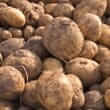Background
- The African wild potato is native to South Africa. It is a bitter plant used for a wide variety of conditions including diabetes mellitus, hemorrhage, and prostate problems.
- Traditional healers have used the African wild potato boiled into tea for its medicinal properties. In southern Mozambique, it was widely used during the Civil War (1976-1992) by both soldiers and civilians who lost blood through injuries. The tea from the plant is said to quickly replace lost blood. The tea is used in conjunction with other plants to combat "bad blood" in patients with diabetes mellitus.
- The Shangaan used African wild potato in a mixture with other plants for endometriosis and premenstrual syndrome (PMS). The rootstock was one of the ingredients of an infusion taken as an "internal parasiticide" and purgative. The Manyika used the rootstock for medicinal and ceremonial purposes. The Karanga used the rootstock as a remedy for vomiting, loss of appetite, abdominal pains and fevers. It was also used to treat delirium.
- African wild potato may boost immune function, based on indirect evidence that sterols and sterolins in Hypoxis root have the potential to enhance immunity. Some believe its nutrient values are 50,000 times greater than modern vegetables. Today, sterols and sterolins are still sought after and are preferred immune system boosters.
References
Natural Standard developed the above evidence-based information based on a thorough systematic review of the available scientific articles. For comprehensive information about alternative and complementary therapies on the professional level, go to . Selected references are listed below.
- Berges RR, Windeler J, Trampisch HJ, et al. Randomised, placebo-controlled, double-blind clinical trial of beta-sitosterol in patients with benign prostatic hyperplasia. Beta-sitosterol Study Group. Lancet 1995;345(8964):1529-1532.
View Abstract - Dreikorn K, Schonhofer PS. [Status of phytotherapeutic drugs in treatment of benign prostatic hyperplasia]. Urologe A 1995;34(2):119-129.
View Abstract - Fagelman E, Lowe FC. Herbal medications in the treatment of benign prostatic hyperplasia (BPH). Urol Clin North Am 2002;29(1):23-9, vii.
View Abstract - Klippel KF, Hiltl DM, Schipp B. A multicentric, placebo-controlled, double-blind clinical trial of beta-sitosterol (phytosterol) for the treatment of benign prostatic hyperplasia. German BPH-Phyto Study group. Br J Urol 1997;80(3):427-432.
View Abstract - Lowe FC, Fagelman E. Phytotherapy in the treatment of benign prostatic hyperplasia. Curr Opin Urol 2002;12(1):15-18.
View Abstract - Lowe FC. Phytotherapy in the management of benign prostatic hyperplasia. Urology 2001;58(6 Suppl 1):71-76.
View Abstract - Mills E, Foster BC, Heeswijk RV, et al. Impact of African herbal medicines on antiretroviral metabolism. AIDS 2005;19(1):95-97.
View Abstract - Musabayane CT, Xozwa K, Ojewole JA. Effects of Hypoxis hemerocallidea (Fisch. & C.A. Mey.) [Hypoxidaceae] corm (African Potato) aqueous extract on renal electrolyte and fluid handling in the rat. Ren Fail 2005;27(6):763-770.
View Abstract - Ojewole JA. Antinociceptive, anti-inflammatory and antidiabetic properties of Hypoxis hemerocallidea Fisch. & C.A. Mey. (Hypoxidaceae) corm ['African Potato'] aqueous extract in mice and rats. J Ethnopharmacol 2006;103(1):126-134.
View Abstract - Risa J, Risa A, Adsersen A, et al. Screening of plants used in southern Africa for epilepsy and convulsions in the GABAA-benzodiazepine receptor assay. J Ethnopharmacol 2004;93(2-3):177-182.
View Abstract - Vahlensieck W, Jr. [With alpha blockers, finasteride and nettle root against benign prostatic hyperplasia. Which patients are helped by conservative therapy?]. MMW Fortschr Med 2002;144(16):33-36.
View Abstract - Wilt TJ, Ishani A, Rutks I, et al. Phytotherapy for benign prostatic hyperplasia. Public Health Nutr 2000;3(4A):459-472.
View Abstract







